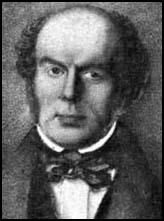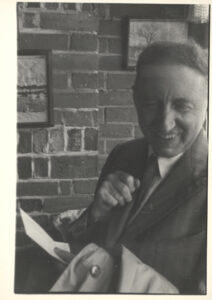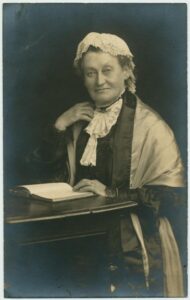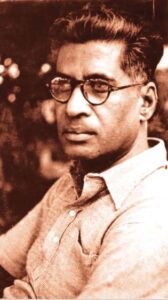

I have ever considered that the only religion useful to man consists exclusively of the practice of morality, and in the mutual interchange of kind actions.
Last Will and Testament of Henry Hetherington
Henry Hetherington was a writer, printer, publisher, and bookseller, who tirelessly championed freedom of the press, freedom of thought, and the rights of the working class. He played a leading role in Chartist and Owenite organisations, as well as in the ‘war of the unstamped’, which fought to make radical ideas accessible to everyone, regardless of wealth or status. Hetherington believed in social reform and cooperation, motivated not by religious belief but by a humanist sense of duty to his fellow man.
Henry Hetherington was born in Soho, London, in 1792, the son of a tailor. At thirteen, he was apprenticed to parliamentary printer Luke Hansard, and later worked as a printer in Belgium. From 1815, however, and for the rest of his life, he lived and worked in London. Hetherington married in 1811, and had nine children.
During the 1820s, he became involved in a variety of radical, reformist causes, particularly in support of universal suffrage and democratic politics. Hetherington was active in various organisations promoting the ideas of Robert Owen, such as the Co-operative and Economical Society, the British Association for Promoting Co-operative Knowledge, and the London Mechanics’ Institution. He became immersed in the working class radicalism of London, and prominent in groups including the Radical Reform Association and the National Union of the Working Classes.
The next decade saw Hetherington take up the cause which would come to define him: that of the ‘taxes on knowledge’. These taxes on newspapers and printed materials, in existence since 1712 but increased in 1819, were designed – many felt – to prevent the poor being exposed to radical ideas. Hetherington and others, including fellow freethinker Collet Dobson Collet, spoke and campaigned widely against the tax, as well as publishing illegal, unstamped papers in defiance of it.
For this, Hetherington was imprisoned on three occasions, prosecuted for both seditious libel and for the selling of unstamped papers. Like fellow prosecuted radicals, including Richard Carlile, Robert Wedderburn, and Susannah Wright, Hetherington mounted vigorous courtroom defences, which he published after the fact. The stamp duty was reduced in 1836, but the six years leading up to this saw the publication of over 500 unstamped titles. From then on, Hetherington continued to champion a variety of national and international causes, including universal suffrage, and the Italian revolutionary Giuseppe Mazzini.
Like Robert Owen, and other 19th century freethinkers, Hetherington was a proponent of ‘rational religion’: stripped of superstition and ritual, and focused instead on the ‘practice of morality’ and ‘the mutual interchange of kind actions’. He was prosecuted for blasphemy in 1840, having published a work entitled Letters to the Clergy of All Denominations, and imprisoned for four months. His trial, in which he pressed the necessity of religious freedom, was highly publicised.
In 1849, Hetherington contracted cholera. His Last Will and Testament was published shortly before his death, and affirmed a humanist belief in the worthiness of a life lived for others, and death as the end. Hetherington died on 24 August 1849, and two thousand people attended his burial at Kensal Green Cemetery two days later. His hearse bore the words: ‘We ought to endeavour to leave the world better than we found it.’
I believe death to be an eternal sleep—that I shall never live again in this world, or another, with a consciousness that I am the same identical person that once lived, performed the duties, and exercised the functions of a human being.
Henry Hetherington was a significant figure in the tradition of working class radicalism, and distinctly humanist in his advocacy of rationalism, cooperation, and kindness. Like others who fought for press freedom, universal suffrage, and just social reform, Hetherington was a notable influence on his contemporaries, and embodied the causes taken up by humanists who came after him.
Infidel Deathbeds by G. W. Foote

Humanism could (better) be honoured by reciting a list of the things one has enjoyed or found interesting, of the […]

Dr Alice Vickery was a humanist, physician, and devoted champion of women’s reproductive rights. Her tombstone inscription remembers her as […]

Max Gate is the former home of Thomas Hardy in Dorchester, Dorset. Hardy designed and lived in Max Gate from 1885 until […]

The realisation of the possibility of a secular rational morality opens up a new perspective before the modern world… It […]